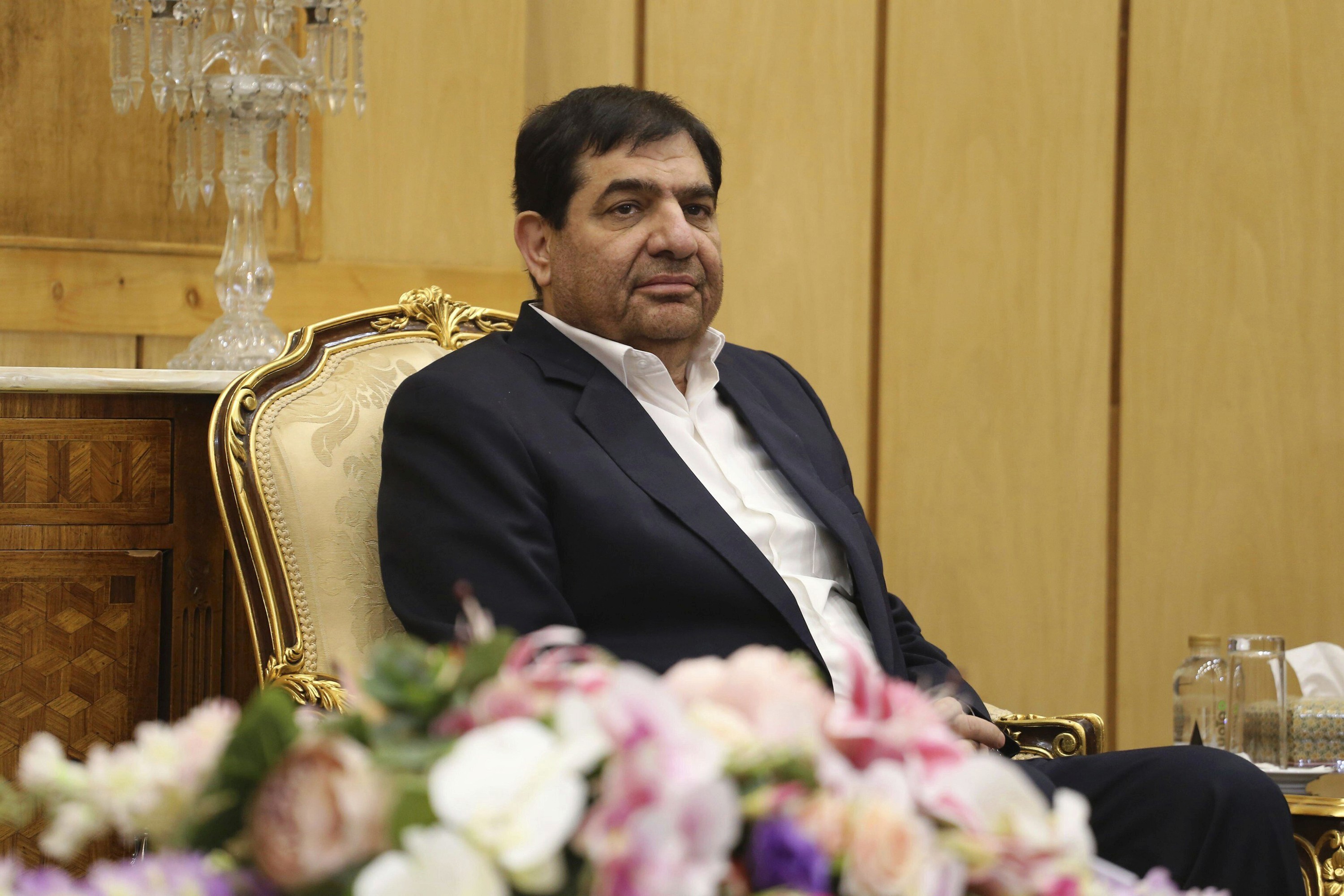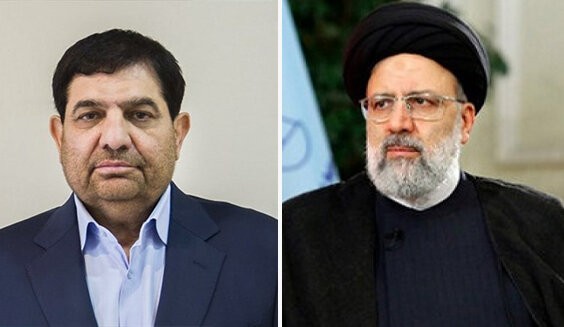


Published in politics
Published in politics



May 20, 2024
May 20, 2024
May 20, 2024
"Helicopter Crash Raises Potential for Mohammad Mokhber to Assume Iran's Presidency in Event of Emergency"
"Helicopter Crash Raises Potential for Mohammad Mokhber to Assume Iran's Presidency in Event of Emergency"
"Helicopter Crash Raises Potential for Mohammad Mokhber to Assume Iran's Presidency in Event of Emergency"
In the event of any unfortunate occurrence affecting President Raisi, Iranian media suggests that Vice President Mohammad Mokhber would assume the presidency. As per these reports, a new election would need to be conducted within a 50-day timeframe.
In the event of any unfortunate occurrence affecting President Raisi, Iranian media suggests that Vice President Mohammad Mokhber would assume the presidency. As per these reports, a new election would need to be conducted within a 50-day timeframe.
In the event of any unfortunate occurrence affecting President Raisi, Iranian media suggests that Vice President Mohammad Mokhber would assume the presidency. As per these reports, a new election would need to be conducted within a 50-day timeframe.

In the event of President Ebrahim Raisi's demise, the constitutional framework of Iran dictates that First Vice President Mohammad Mokhber would assume presidential powers, subject to approval by the supreme leader, Ayatollah Ali Khamenei. As outlined in Article 131 of Iran's constitution, a council comprising key figures from the executive, legislative, and judicial branches—namely, the first vice president, the speaker of parliament, and the chief justice—would oversee the organization of a special election for a new president within 50 days.
Mohammad Mokhber, aged 69, stands as the most senior among the 12 vice presidents in Iran. Notably, Mokhber's association with Ayatollah Khamenei is deep-rooted; in 2007, Khamenei appointed Mokhber as the chief executive of Setad, a substantial financial conglomerate exclusively controlled by Khamenei himself. Investigations by Reuters in 2013 uncovered that a significant portion of Setad's assets stemmed from the seizure of property belonging to Iranian citizens.
During Mokhber's tenure, Setad embarked on the development of a coronavirus vaccine, which, though financially lucrative, ultimately proved ineffective, culminating in project failure.
However, Mokhber's profile is not devoid of controversy. He has faced sanctions from both the United States and its allies. In 2010, the European Union imposed sanctions on Mokhber and seven other Iranians due to their involvement in Iran's ballistic missile program. Subsequently, in 2021, the U.S. Treasury sanctioned Mokhber for his purported financial complicity in Iran's "systemic corruption and mismanagement."
Despite these challenges, six months following the U.S. sanctions, Mokhber ascended to the position of Iran's top vice president, positioning him as a central figure in the country's political landscape.

In the event of President Ebrahim Raisi's demise, the constitutional framework of Iran dictates that First Vice President Mohammad Mokhber would assume presidential powers, subject to approval by the supreme leader, Ayatollah Ali Khamenei. As outlined in Article 131 of Iran's constitution, a council comprising key figures from the executive, legislative, and judicial branches—namely, the first vice president, the speaker of parliament, and the chief justice—would oversee the organization of a special election for a new president within 50 days.
Mohammad Mokhber, aged 69, stands as the most senior among the 12 vice presidents in Iran. Notably, Mokhber's association with Ayatollah Khamenei is deep-rooted; in 2007, Khamenei appointed Mokhber as the chief executive of Setad, a substantial financial conglomerate exclusively controlled by Khamenei himself. Investigations by Reuters in 2013 uncovered that a significant portion of Setad's assets stemmed from the seizure of property belonging to Iranian citizens.
During Mokhber's tenure, Setad embarked on the development of a coronavirus vaccine, which, though financially lucrative, ultimately proved ineffective, culminating in project failure.
However, Mokhber's profile is not devoid of controversy. He has faced sanctions from both the United States and its allies. In 2010, the European Union imposed sanctions on Mokhber and seven other Iranians due to their involvement in Iran's ballistic missile program. Subsequently, in 2021, the U.S. Treasury sanctioned Mokhber for his purported financial complicity in Iran's "systemic corruption and mismanagement."
Despite these challenges, six months following the U.S. sanctions, Mokhber ascended to the position of Iran's top vice president, positioning him as a central figure in the country's political landscape.

In the event of President Ebrahim Raisi's demise, the constitutional framework of Iran dictates that First Vice President Mohammad Mokhber would assume presidential powers, subject to approval by the supreme leader, Ayatollah Ali Khamenei. As outlined in Article 131 of Iran's constitution, a council comprising key figures from the executive, legislative, and judicial branches—namely, the first vice president, the speaker of parliament, and the chief justice—would oversee the organization of a special election for a new president within 50 days.
Mohammad Mokhber, aged 69, stands as the most senior among the 12 vice presidents in Iran. Notably, Mokhber's association with Ayatollah Khamenei is deep-rooted; in 2007, Khamenei appointed Mokhber as the chief executive of Setad, a substantial financial conglomerate exclusively controlled by Khamenei himself. Investigations by Reuters in 2013 uncovered that a significant portion of Setad's assets stemmed from the seizure of property belonging to Iranian citizens.
During Mokhber's tenure, Setad embarked on the development of a coronavirus vaccine, which, though financially lucrative, ultimately proved ineffective, culminating in project failure.
However, Mokhber's profile is not devoid of controversy. He has faced sanctions from both the United States and its allies. In 2010, the European Union imposed sanctions on Mokhber and seven other Iranians due to their involvement in Iran's ballistic missile program. Subsequently, in 2021, the U.S. Treasury sanctioned Mokhber for his purported financial complicity in Iran's "systemic corruption and mismanagement."
Despite these challenges, six months following the U.S. sanctions, Mokhber ascended to the position of Iran's top vice president, positioning him as a central figure in the country's political landscape.